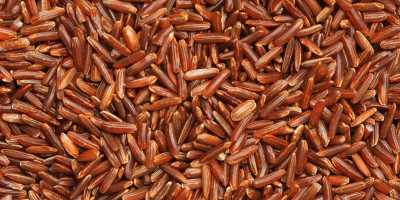Vitamin B1 (Thiamine): Advantages and Disadvantages
Vitamin B1 also known as thiamine is an essential nutrient that plays a vital role in the body's metabolism and overall health. It is a water-soluble vitamin that cannot be stored in the body, making it important to obtain it from a well-balanced diet. In this article, we will discuss the advantages and disadvantages of Vitamin B1 (Thiamine) and explore its impact on human health.
10 health benefits of Vitamin B1
-
Improved Energy Levels:
Thiamine, also known as Vitamin B1, plays a crucial role in converting food into energy, making it an essential nutrient for maintaining healthy energy levels.
-
Enhanced Brain Function:
Thiamine supports healthy brain function by aiding in the production of acetylcholine a neurotransmitter that plays a key role in memory and learning.
-
Improved Digestive Health:
Thiamine helps to maintain a healthy digestive system by supporting the production of hydrochloric acid, which aids in the breakdown of food.
-
Better Cardiovascular Health:
Vitamin B1 helps to maintain a healthy cardiovascular system by supporting the production of red blood cells and aiding in the proper functioning of the heart and blood vessels.
-
Healthy Nervous System:
Thiamine is essential for the proper functioning of the nervous system, as it aids in the production of myelin, a substance that helps to insulate and protect nerves.
-
Improved Muscle Function:
Vitamin B1 helps to maintain healthy muscle function by aiding in the production of ATP, a molecule that provides energy for muscle contractions.
-
Healthy Skin:
Thiamine is essential for maintaining healthy skin as it helps to protect against damage from free radicals and supports the production of collagen, a protein that provides structure and elasticity to the skin.
-
Improved Immune System:
Vitamin B1 supports a healthy immune system by aiding in the production of white blood cells which are essential for fighting off infections and diseases.
-
Regulated Appetite:
Thiamine helps to regulate appetite by supporting the proper functioning of the hypothalamus the part of the brain that controls hunger and thirst.
-
Reduced Risk of Complications During Pregnancy:
Vitamin B1 supplementation during pregnancy has been shown to reduce the risk of complications such as pre-eclampsia and premature delivery.
Sources of Vitamin B1 in Natural Foods
-
Whole grains:
Whole grains such as brown rice, barley, and oats are good sources of thiamine.
-
Pork:
Pork, particularly pork chops, is a rich source of thiamine.
-
Nuts and seeds:
Nuts and seeds, such as sunflower seeds macadamia nuts, and pecans, are good sources of thiamine.
-
Legumes:
Legumes, such as lentils, black beans and peas, are good sources of thiamine.
-
Yeast:
Yeast, particularly nutritional yeast is a good source of thiamine.
-
Organ meats:
Organ meats, such as liver and kidney are good sources of thiamine.
Risks of Excessive Vitamin B1 Intake
-
Low risk of toxicity:
Vitamin B1 has a low risk of toxicity even in high doses. However excessive intake of thiamine may cause mild side effects such as stomach upset, headache and dizziness.
-
Interference with certain medications:
Thiamine supplements can interfere with certain medications, such as diuretics and chemotherapy drugs. Therefore, it is important to consult a healthcare provider before taking thiamine supplements.
While Vitamin B1 (Thiamine) has many potential health benefits, it is important to be aware of the possible risks and disadvantages associated with taking too much of it. As with any supplement or medication it is always best to consult with a healthcare professional before taking Vitamin B1 or making any significant changes to your diet or lifestyle. They can provide personalized advice and help you make informed decisions about your health. Remember taking care of your health is a collaborative effort, and your doctor is an important member of your team.
This article is part from 10 Essential Vitamins: Benefits, Side Effects, and Sources
